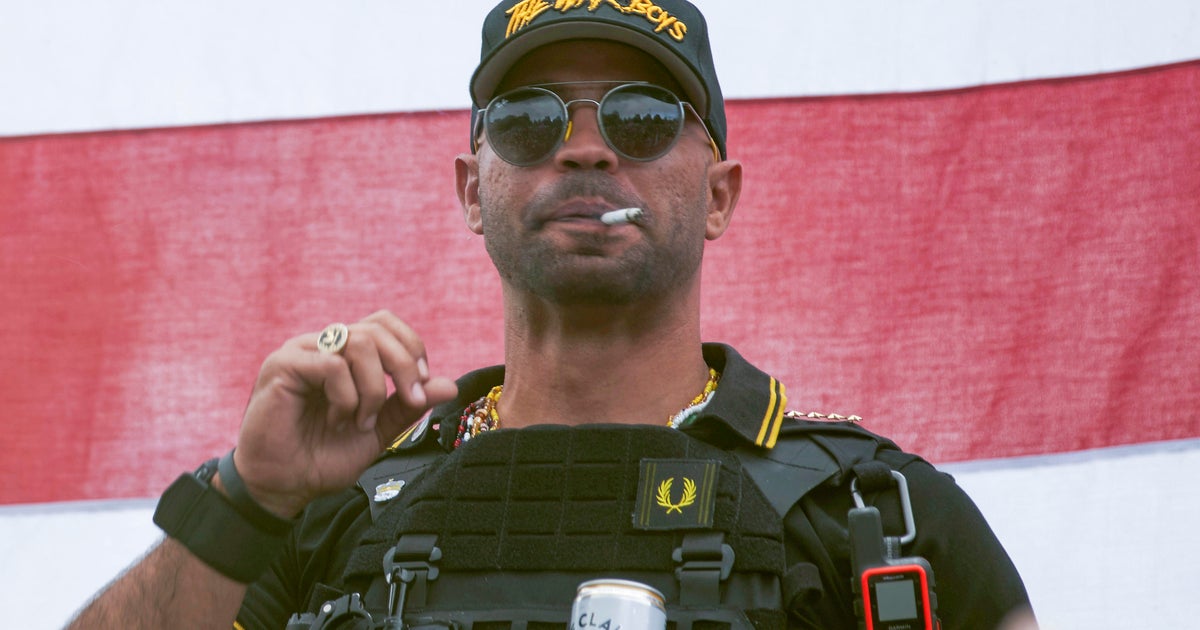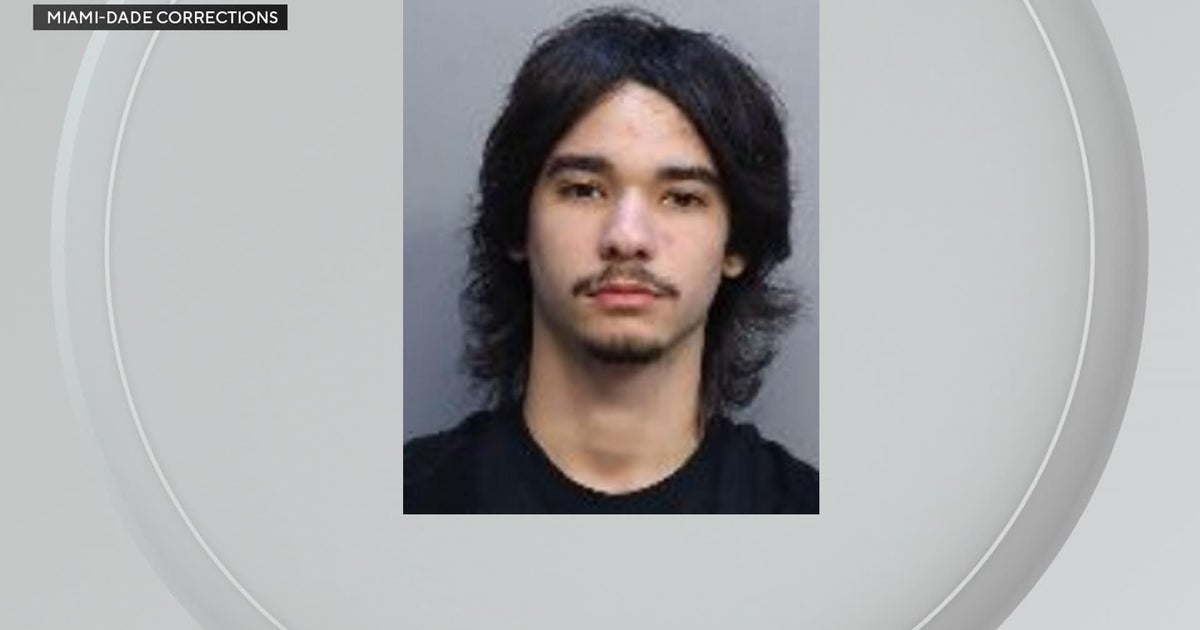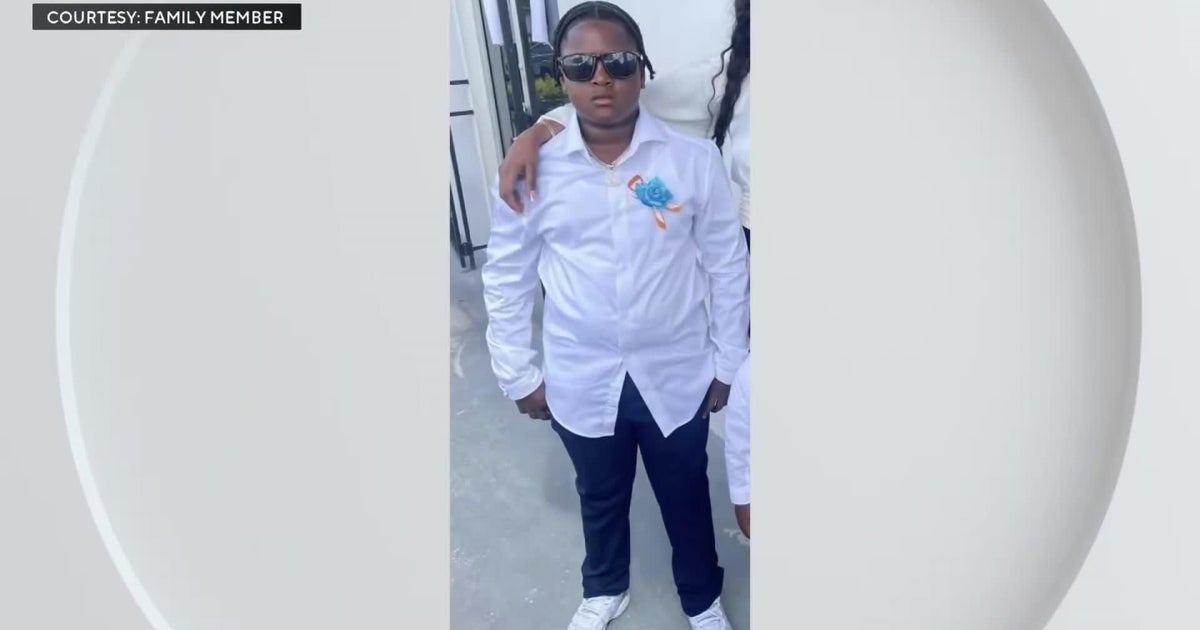911 Calls At Issue In Zimmerman Trial
SANFORD (CBSMiami/AP) – Prosecutors in the trial of George Zimmerman, who is charged with second murder in the shooting death of Trayvon Martin, are trying to convince the judge to allow his previous calls to 9-1-1 to be entered into evidence.
In the calls, prosecutor Richard Mantei said Zimmerman complained about "suspicious" characters in his neighborhood. He told the judge they are central to the prosecution's argument that Zimmerman committed second-degree murder since it shows his growing ill will at people he viewed as suspicious who were walking through his neighborhood. In each of the calls, which were played for Judge Debra Nelson with the jurors out of the courtroom, Zimmerman described the suspicious characters as black males.
The calls made in the six months before Zimmerman fatally shot Martin on Feb. 26, 2012, reflect the neighborhood watch volunteer's growing frustration with repeated break-ins at his gated community of townhomes and plays into the prosecution's theory that his view of Martin as a suspicious character was "the straw that broke the camel's back," Mantei said.
Defense attorney Mark O'Mara argued that the calls were irrelevant and that no previous incidents matter except the seven or eight minutes prior to when Zimmerman fired the deadly shot into Martin's chest.
"They're going to ask the jury to make a leap from a good, responsible, citizen behavior to seething behavior," O'Mara said of the prosecution's depiction of Zimmerman's actions.
Nelson said she would make a ruling after reviewing prior cases.
Prosecutors called to the stand a Sanford police sergeant who was the second officer to respond to the scene after Zimmerman fatally shot Martin. Sgt. Tony Raimondo testified that he tried to seal a bullet wound in Martin's chest with a plastic bag and attempted mouth-to-mouth resuscitation.
Bubbling sounds indicated that air was escaping the teen's chest, Raimondo said.
Martin was pronounced dead a short time later.
During Raimondo's testimony, prosecutors showed jurors a photo of Martin's dead body face-down in the grass, another of Martin's body face up with his eyes slightly open and a third of the bullet wound. Martin's father, Tracy Martin, walked out of the courtroom during the testimony.
Zimmerman, 29, could get life in prison if convicted of second-degree murder for gunning down Martin as the black teenager, wearing a hoodie on a dark, rainy night, walked from a convenience store through the gated townhouse community where he was staying. Zimmerman is pleading not guilty, claiming self-defense.
The case took on racial dimensions after Martin's family claimed that Zimmerman had racially profiled the teen and that police were dragging their feet in bringing charges. Zimmerman, who identifies himself as Hispanic, has denied the confrontation had anything to do with race.
Prosecutors also called the former coordinator of the Sanford Police Department's neighborhood watch program, who testified how she had worked with Zimmerman to set up a watch program in his neighborhood, The Retreat at Twin Lakes.
When asked by prosecutor John Guy if neighborhood watch participants should either follow or engage with suspicious people, she answered "no."
"They are the eyes and ears of law enforcement," said Wendy Dorival, the Sanford Police manager. "They're not supposed to take matters into their own hands."
But Dorival said she was impressed with Zimmerman's professionalism and dedication to his community and asked him to join another program, Citizens on Patrol, which trained residents to patrol their neighborhoods. He declined.
"He seemed like he really wanted to make changes in his community, to make it better," Dorival said.
The president of Zimmerman's homeowners association also testified that Zimmerman was in charge of the neighborhood watch program started in his townhome complex. He said Zimmerman was the person who went through a class offered by Sanford police to get it started.
Donald O'Brien said he also attended a neighborhood watch meeting led by Zimmerman and it was O'Brien's understanding that participating residents "were supposed to stay away" from suspicious activity and "call the police."
"Do not get close to anybody," O'Brien said of what he understood about neighborhood watch. "Stay at a safe distance and call 911. Let the police handle it."
The prosecution began opening statements Monday in the long-awaited murder trial with shocking language, repeating obscenities Zimmerman uttered while talking to a police dispatcher moments before the deadly confrontation.
The defense opened with a knock-knock joke about the difficulty of picking a jury for a case that stirred nationwide debate over racial profiling, vigilantism and Florida's expansive laws on the use of deadly force.
Guy portrayed the then-neighborhood watch volunteer as a vigilante, saying, "Zimmerman thought it was his right to rid his neighborhood of anyone who did not belong."
Defense attorney Don West told jurors a different story: Martin sucker-punched Zimmerman and then pounded his head against the concrete sidewalk, and that's when Zimmerman opened fire.
Also, shown in court, an Arizona Tea can, a bag of Skittles, Trayvon Martin's headphones and a cell phone that so far, have only been seen in photographs.
All of the items contained in plastic bags were viewed by the jury.
In addition to the possessions, the jury got to see the gun police say fired the shot that killed Martin.
(TM and © Copyright 2013 CBS Radio Inc. and its relevant subsidiaries. CBS RADIO and EYE Logo TM and Copyright 2013 CBS Broadcasting Inc. Used under license. All Rights Reserved. This material may not be published, broadcast, rewritten, or redistributed. The Associated Press contributed to this report.)



